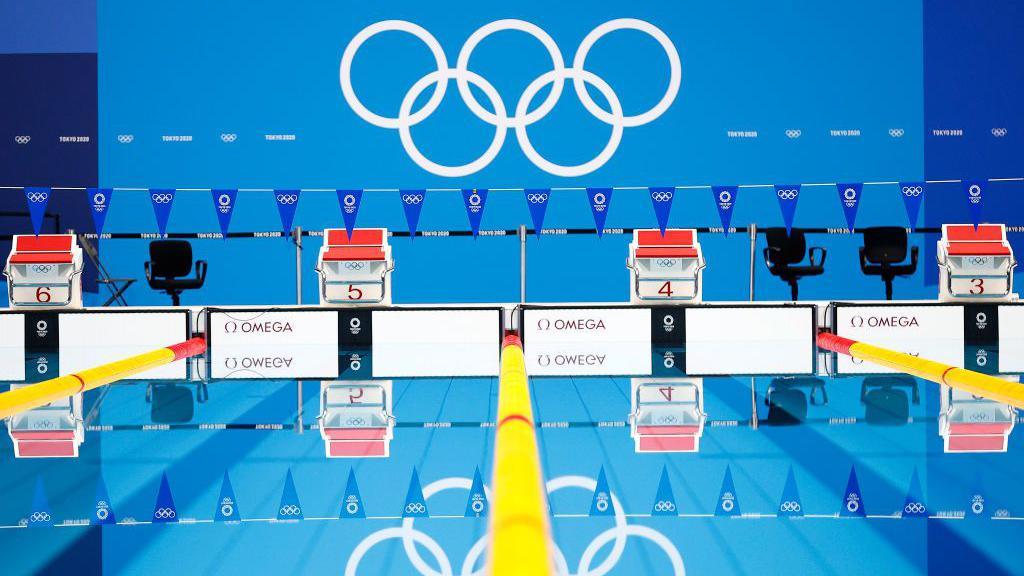Wada did not mishandle Chinese swimmers case - report

China's 30-member swimming team won six medals at the Tokyo Olympics, including three golds
- Published
The World Anti-Doping Agency did not show bias in the case of 23 Chinese swimmers cleared to compete at the Tokyo Olympics despite testing positive for a banned substance, says an independent investigation.
Swiss prosecutor Eric Cottier's interim report also found it was reasonable for Wada not to appeal against the decision by China Anti-Doping Agency (Chinada) to not punish the athletes.
The swimmers, 11 of whom have been selected for this month's Paris Olympics, tested positive for heart medication trimetazidine (TMZ) at a training camp seven months before the delayed Games in 2021.
Chinada determined they had unintentionally ingested the substance because of contamination.
The annex to Cottier's report states Wada's senior director of science and medicine, Olivier Rabin, had "doubts about the reality of contamination as described by the Chinese authorities".
However, he was "unable to exclude the contamination scenario in a solidly substantiated manner" and therefore "saw no other solution than to accept it".
Wada ultimately said it was "not in a position to disprove" Chinada's conclusion and opted not to appeal after consulting independent experts as well as external legal counsel.
That drew criticism from athletes and the United States Anti-Doping Agency (Usada), whose chief executive Travis Tygart suggested a cover-up - a claim Wada rejected as "completely false and defamatory".
Tygart again criticised Wada after the report was published, stating it "still leaves most of the critical questions unanswered".
He called on Wada to "release the full China dossier", agree to a compliance audit and a "more thorough and independent investigation, where the scope and investigator are identified by neutral third parties".
Anti-doping groups FairSport and Global Athlete said the process was "inherently flawed from the outset due to its limited scope and independence".
In a joint statement, they added: "Until all related documents are made public, trust in the system will not be regained and Wada's position as the global regulator will continue to be challenged."
China picks swimmers caught in doping scandal for Paris
- Published19 June 2024
Chinese swimmers competed at Tokyo despite failed tests
- Published22 April 2024
Details of the case were revealed in April by the New York Times, which shared reporting with German broadcaster ARD.
Wada subsequently began an independent review.
Cottier said: "There is nothing in the file - which is complete - to suggest that Wada showed favouritism or deference, or in any way favoured the 23 swimmers who tested positive for trimetazidine (TMZ) between 1 and 3 January 2021, when it proceeded to review Chinada's decision to close the proceedings against them without further action."
He added he had found no evidence of "interference or meddling" in Wada's review of the case, either from within the organisation or from Chinada or Chinese authorities.
Cottier concluded Wada's decision not to appeal against Chinada's conclusion was "reasonable, both from the point of view of the facts and the applicable rules".
Wada president Witold Banka welcomed the conclusions of the report and said the organisation would now consider "what measures can be taken against those that have made untrue and potentially defamatory allegations".
He added the case had been used "as a geopolitical tool" in a wider dispute between between China and the United States.
Cottier's full report is expected in the coming weeks.
The US Department of Justice (DOJ) is also investigating the case, which Wada said on Thursday it was "disappointed" to learn.